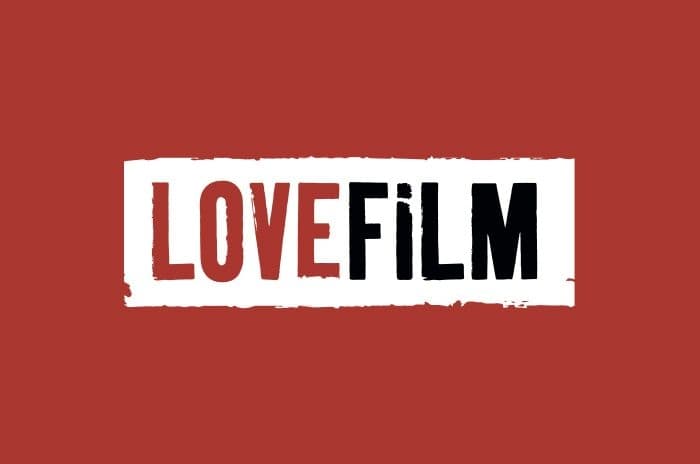Home > TV & Broadband > News > Amazon close Lovefilm in race against Netflix
Amazon close Lovefilm in race against Netflix
AMAZON have confirmed they are to close their Lovefilm by Post DVD rental service, which will stop mailing out DVDs to its subscribers on October 31st.

The service is the last remaining vestige of Lovefilm, a DVD rental and video streaming company who were acquired by Amazon in 2011, when they had over one million subscribers.
Since this acquisition, they'd experienced mixed if hard-to-establish fortunes, with their rental service threatened by the rise of Netflix and also by Amazon themselves, who in 2014 absorbed the video-streaming portion of Lovefilm into Amazon Instant Video.
This might mean that, for some at least, Lovefilm by Post's end doesn't come as much of a surprise, yet seeing as how Amazon Instant Video is vying aggressively to match the six million subscribers belonging to Netflix, it's possible that part of Amazon's intention behind the closure was to boost their own streaming customers.
A brief history
Many years ago, Lovefilm were the king of trendy film services, boasting some 1.4 million subscribers in the UK and over two million in their territories as a whole (including the UK, Germany and the Netherlands).
Established in 2004, they quickly became Europe's biggest DVD rental company, mailing out DVDs (and later streaming films directly) to subscribers, who would then post the films back once they'd watched them.
Given their growth, and given that Netflix - who had enjoyed even stronger expansion in the US - were reportedly planning to break into the UK, Amazon acquired them in January 2011, increasing their share in Lovefilm from 32% to 100%.
For a while, things continued as normal for the Lovefilm brand, but in 2014 Amazon transformed the Lovefilm Instant service into Amazon Instant Video.
Declining sales
And from then on, the writing had kind of been on the wall for Lovefilm, which in the wake of the Lovefilm Instant absorption was rebranded as Lovefilm by Post.
On the one hand, some observers might say that it was only a matter of time before Lovefilm by Post made a similar disappearance, what with the Entertainment Retailers Association reporting in January that digital video sales (including streaming) had overtaken those for physical video (e.g. DVD) for the first time ever.
| Format | Total 2015 sales | Total 2016 sales | Percentage change |
|---|---|---|---|
| Physical Retail Video | £1.075 billion | £893.6 million | -16.9% |
| Physical Rental Video | £62.5 million | £49.3 million | -21.2% |
| Digital Video | £1.065 billion | £1.31 billion | 22.8% |
| Total Video | £2.204 billion | £2.252 billion | 2.2% |
Source: Entertainment Retailers Association
Yet on the other hand, even though the public seem increasingly less interested in physical video, the fact that rentals made £49.3 million in 2016 shows that there's still a demand for DVDs.
It's therefore tempting to suggest that part of Amazon's motivation for closing Lovefilm by Post isn't simply to respond to a growing trend, but perhaps to swallow up the service's remaining subscribers, in a similar way to how they gobbled up Lovefilm Instant customers.
In light of how recent Ofcom research and Amazon's own spending on original programming shows that they're racing fervently to get their 3.8 million Amazon Instant Video subscribers up to the six million boasted by Netflix, it just might be the case that, as much as escaping a shrinking market, they wanted to boost their subscriber base.
A blow for film, a gain for broadband
However, to be fair to Amazon, it's doubtful they'll gain many subscribers to their video service by closing Lovefilm by Post, since even though they weren't entirely transparent about how many customers the latter had, it's unlikely that the figure came close to topping a million.
And for the record, Amazon affirm that they came to their decision purely because of the changing nature of media consumption, with a spokesperson telling us, "over the last few years we've seen a decreasing demand for DVD and Blu-ray rental as customers increasingly move to streaming".
Of course, even though this statement is backed up by sales figures, this hasn't stopped the closure of Lovefilm by Post from coming as a shock to its loyal customers.
Many complained of how the movie libraries of the most obvious alternatives - Netflix and Amazon Video itself - aren't as wide ranging as Lovefilm's, meaning that the death of the latter is to a large extent a blow for film lovers and for choice in film.
One other downside is that, with the (all-but) forced move from DVD rentals to streaming, the closure of Lovefilm is essentially equivalent to an imposed transition on some people from broadband to superfast broadband (or faster), which is needed if customers are to make the most of streaming.
As one unhappy Lovefilm subscriber tweeted,
Oh @AmazonUK don't cancel #Lovefilm by post... some of us have sub 2mbps broadband and can't stream anything... #kent #rural @TMBC_Kent
- Erica Price (@ericapdesign) 14 August 2017
For some who complain that the UK's average broadband speeds are too slow, this coerced migration to faster broadband might be a good thing, yet it goes without saying that the demise of Lovefilm will be sad news for many others.
Receive consumer updates that matter in our newsletter

We are independent of all of the products and services we compare.

We order our comparison tables by price or feature and never by referral revenue.

We donate at least 5% of our profits to charity, and we aim to be climate positive.
Latest News

24 November 2025
CityFibre delivers full-fibre freedom to Hull with 30+ ISPs
21 November 2025
Vodafone expands 'Add to Plan' to home broadband customers
19 November 2025
Virgin Media brings FAST channels to on-demand libraryReceive consumer updates that matter in our newsletter



Comments (1)